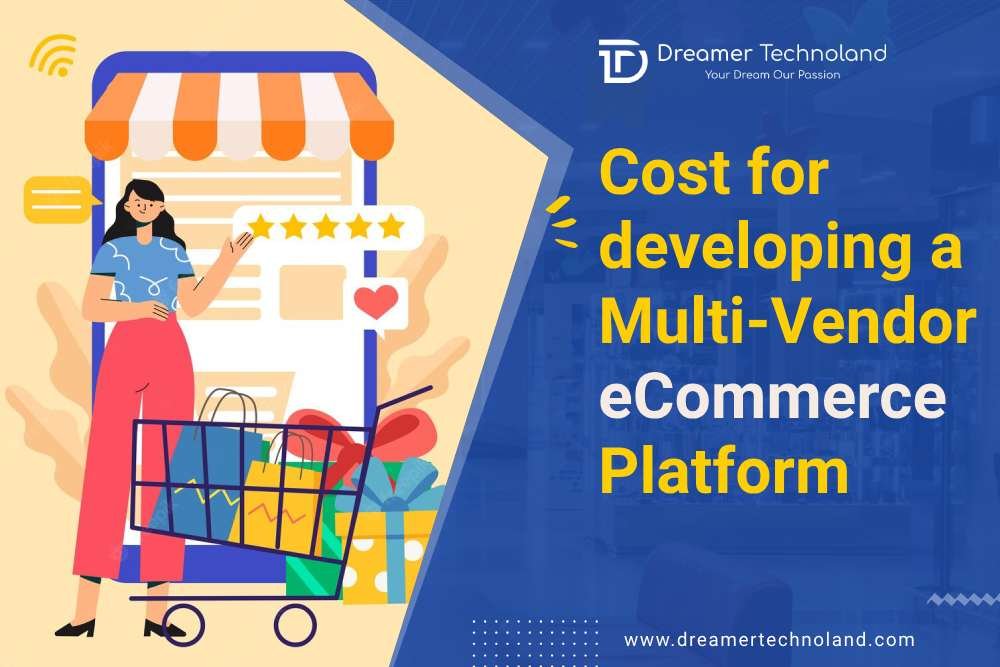E-commerce technology has evolved rapidly, offering businesses a wide range of features to enhance their online operations. In this blog, we will discuss the technology used in e commerce.
Here are eight unique features that can set your e-commerce platform apart:
- Augmented Reality (AR) and Virtual Reality (VR): Provide immersive shopping experiences, allowing customers to virtually try on products or visualize products in their homes.
- Voice Search and AI-Powered Assistants: Enable customers to search for products using voice commands, making the shopping experience more convenient.
- Personalized Recommendations: Utilize AI and machine learning to offer personalized product recommendations based on customer behavior and preferences.
- Social Commerce Integration: Integrate ecommerce web solutions with social media platforms to allow customers to share products, reviews, and purchases with their network.
- Subscription-Based Models: Offer recurring subscriptions for products or services, providing a steady revenue stream.
- Mobile-First Design: Optimize your e-commerce platform for mobile devices to cater to the growing number of mobile shoppers.
- Blockchain Technology: Implement blockchain for secure transactions, supply chain transparency, and loyalty programs.
- Live Chat and Virtual Assistants: Provide real-time customer support through live chat and AI-powered virtual assistants.
These features can enhance the customer experience, increase sales, and differentiate your e-commerce business from competitors. By leveraging these technologies, you can stay ahead of the curve and offer a cutting-edge online shopping experience.
What is the Technology Used in E Commerce?
E-commerce platforms rely on a variety of technologies to provide a seamless online shopping experience. Here are a few technology used in e commerce:
Frontend Technologies:
- HTML, CSS, and JavaScript: These are the core technologies used to build the user interface of an e-commerce website.
- JavaScript Frameworks: Popular frameworks like React, Angular, and Vue.js are used to create dynamic and interactive user interfaces.
Backend Technologies:
- Programming Languages: Languages like Python, Ruby, and PHP are commonly used for server-side development.
- Web Frameworks: Frameworks like Django, Ruby on Rails, and Laravel can simplify backend development.
- Databases: Databases like MySQL, PostgreSQL, and MongoDB are used to store product data, customer information, and order details.
E-commerce Platforms:
- Open-Source Platforms: Platforms like Magento, WooCommerce, and PrestaShop offer customizable e-commerce solutions.
- SaaS Platforms: Platforms like Shopify and BigCommerce provide hosted e-commerce solutions with a range of features.
Payment Gateways:
- Stripe, PayPal, and Authorize.Net: These are popular payment gateways that allow customers to make secure online payments.
Content Management Systems (CMS):
- WordPress, Drupal, and Joomla: CMS platforms can be used to manage product content, blog posts, and other website content.
Search Engine Optimization (SEO):
- SEO tools and techniques: Optimizing your e-commerce website for search engines can improve visibility and drive traffic.
Analytics:
- Google Analytics and other analytics tools: Track website traffic, user behavior, and sales performance associated with ecommerce web solutions.
Cloud Computing:
- Cloud platforms like AWS, Azure, and GCP: Cloud-based infrastructure can provide scalability and flexibility for e-commerce platforms.
Mobile App Development:
- Mobile app frameworks: Frameworks like React Native and Flutter can be used to develop native mobile apps for iOS and Android.
This is just a brief overview of some of the technologies used in e-commerce. The specific technologies used will depend on the size and complexity of the e-commerce platform, as well as the preferences of the development team.
What is the Total Cost to Build a B2B Ecommerce Website?
The total cost of building a B2B e-commerce website can vary significantly depending on several factors, including:
Features and Functionality:
- Complexity: The more complex features and functionality you require, the higher the cost will be.
- Customization: Custom designs and integrations will also increase costs.
Design and User Experience:
- Custom Design: A custom-designed website will generally cost more than a template-based design.
- User Experience: A focus on creating a seamless and intuitive user experience can add to development time and costs.
Development Team:
- In-house Development: Hiring an in-house team can be expensive but offers more control.
- Outsourcing: Outsourcing development to a third-party company can be more cost-effective, but it may require careful vetting.
- Location: The location of the development team can also affect costs, with developers in regions with lower labor costs generally being less expensive.
Technology Stack:
- Open-Source vs. Proprietary: Open-source platforms like Magento or WooCommerce can be more cost-effective, while proprietary platforms may require licensing fees.
- Custom Development: Building a custom platform from scratch can be more expensive but offers greater flexibility.
Integration with Other Systems:
- ERP, CRM, and Payment Gateways: Integrating your e-commerce platform with other systems can add to development costs.
Post-Launch Support:
- Maintenance and Updates: Ongoing maintenance and updates will contribute to the total cost.
Here are some rough estimates for the cost of building a B2B e-commerce website:
- Basic Website: $10,000 – $30,000
- Mid-Range Website: $30,000 – $100,000
- Enterprise-Level Website: $100,000+
Summary
It’s important to note that these are just estimates and the actual cost can vary depending on your specific requirements. It’s recommended to get quotes from multiple development companies to compare prices and services. If you wish to know the total cost to build a B2B ecommerce website, then you should consult with the sales team of Dreamer Technoland.



